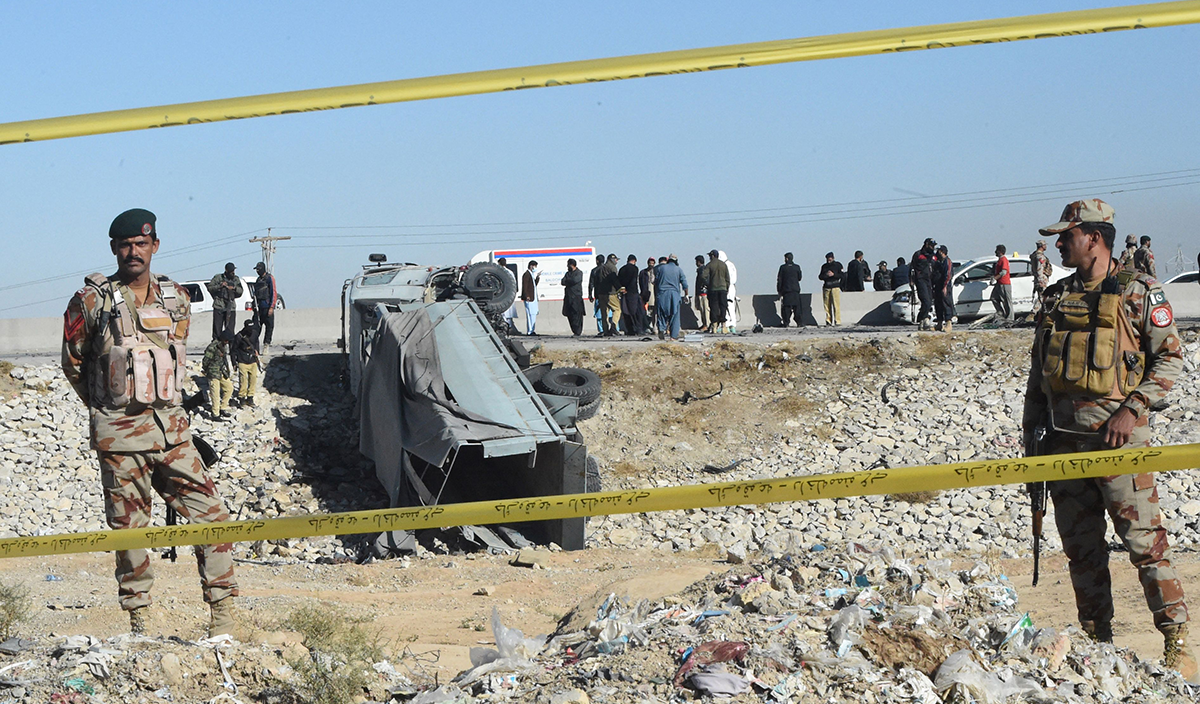
By Manish Rai
The recent bold attacks by the Pakistani Taliban, also known as the Tehreek-e-Taliban Pakistan or TTP, wreaking havoc paints an alarming picture of rising instability across Pakistan. Especially the TTP’s recent incursion into Chitral district of Khyber Pakhtunkhwa bordering Afghanistan is very concerning. Because it may be the attempt by the group to carve out safe sanctuaries for itself by controlling the territory which it used to do till 2014.
This new avatar of TTP has complicated the internal security scenario for Pakistan as the country is also fighting the Baloch insurgency. But this hasn’t come as a surprise since the Afghan Taliban ideological sibling of TTP has taken over Afghanistan. The Pakistani Taliban has begun a trajectory to emulate its allies in Afghanistan. TTP renewed its pledge of allegiance to the Afghan Taliban after the fall of Kabul. Also, the Afghan Taliban freed hundreds of TTP operatives, including the group’s deputy leader, Maulvi Faqir Mohammad and former spokesperson Mufti Khalid Bulti who were detained by Afghan authorities. Also, with the Taliban’s victory in Afghanistan, the TTP has obtained new more sophisticated weapons and relocated fighters from Afghanistan to Pakistan. And the outfit is now turning its focus back to its war against the Pakistani state.
Over the past two years, the group has gone through a series of mergers, strengthened its media and operational activities, moved away from the indiscriminate targeting of civilians in suicide attacks, implemented a range of new internal policies centralizing its organizational structure, and unifocal on a localized strategy. With now a solid organizational foundation and its eyes set on the Pakistani state. TTP appears all set to pose a formidable challenge to the Pakistani establishment.
Another source of the TTP’s aggressive stance is the perceived weakness of its opponent, i.e., the Pakistani State, which has been experiencing high levels of socioeconomic and political instability. Mired in their own set of domestic problems, the Pakistani government and military officials come across as beleaguered. Desperate for a peace deal and ceasefire with TTP. This perception is evident from the tones taken by the TTP’s chief, Mufti Noor Wali Mehsud, in his recent public statements.
TTP becoming a major security challenge is also because of Pakistan’s policy makers short sightedness. Prior to the Afghan Taliban takeover of Afghanistan, the government in Pakistan promoted the narrative that the Afghan and Pakistani Taliban were not interconnected. Also, blamed the growing threat from the TTP on foreign intelligence agencies supported through the former Afghan government. Pakistani officials especially from ISI claimed the Taliban’s recent accession to power would force the TTP to retreat from Afghan territory and eventually face a certain organizational death. Certainly, this didn’t happen on the contrary the Pakistani Taliban problem mutated into a reverse insurgency, tactically supported by elements within the Afghan Taliban government who ironically owe their own victory up to certain degree to Pakistan.
This epiphenomenon has turned the tables against Islamabad, a cruel irony in which Pakistan’s stability is threatened by its own allies while also betrayed by old friends in the Taliban government. This has created tensions between Islamabad and Kabul. In the past Pakistan has tried sending a strong message to the Taliban government by conducting sporadic cross-border strikes against TTP hideouts in Afghanistan, in eastern Kunar and Khost provinces. Those strikes likely had the blessings of Haqqani network Pakistan’s all-weather friend and a governing partner in the Afghan Taliban’s government. But other powerful factions in the southern Taliban have strongly objected to these attacks. This includes the Taliban’s defence minister, Mawlawi Mohammad Yaqoob, who publicly warned Pakistan against such operations.
The Pakistani army has also explored the idea of expanded cross-border operations against the TTP inside Afghanistan. But such operations carry a greater risk of making Pakistan’s relationship with the Taliban government yet more unmanageable. The Afghan Taliban could use the TTP as its proxy against Pakistan, meaning that the two countries could enter an unannounced war. For now, Islamabad faces a lose-lose scenario against the TTP in which its loss will be bigger than the Pakistani Taliban.
Wholesale anti-TTP operations will not only strain its limited resources but also open a bloody Pandora’s box. It’s a matter of fact that still, Tehreek-e-Taliban Pakistan (TTP) is the largest militant organization in Pakistan. They may not be able to control large swaths of territory in tribal areas as they used to do till 2014. But certainly, it can launch a new wave of terrorist attacks across Pakistan if not checked in time. It will be right to say that the Pakistani Taliban is rising from the ashes and no longer wants to lie low and keep a low profile. It’s getting bolder with each passing day. Also, they see Afghan Taliban as a role model and aspire to adopt their pathway which TTP thinks will lead it to success one day. It is high time that Pakistan’s national security apparatus takes the threat of TTP seriously and comes up with a concrete strategy to tackle it. (IPA Service)
By arrangement with the Arabian Post
The post Pakistani Taliban’s Latest Attacks Create Country-Wide Insecurity first appeared on Latest India news, analysis and reports on IPA Newspack.


